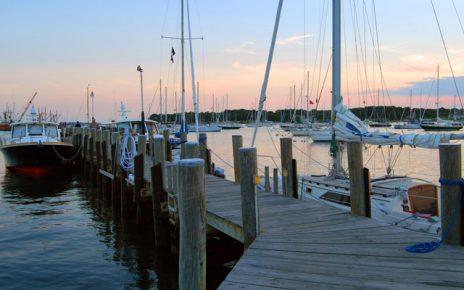Even though all eyes of the state authorities are on sports betting these days, Native tribes have something else in mind. Rodney Butler of Mashantucket Pequot tribes pointed out how Jersey’s online gambling scene was bringing in more money to casinos. Also, the long-serving chairman of eight years mentioned that this money meant more tax revenue for the state.
The tribes see a fitting companion for mobile sports in iGaming. They say that allowing customers to play slots for free and win real money is the best way to attract them. “Feeding off each other, these two formed a successful marriage together,” said Butler.
Importance of Connecticut Tribal Gaming
Since the early nineties, the State of Connecticut generated an estimated amount of $8 billion directly through its casinos. Thanks to the money directly generated by gambling, tribal casinos made an immense economic impact on the region.
Earlier this year, Mashantucket Pequot tribes chairman Rodney Butler reminded everybody attending the convention of the National Indian Gaming Association that no one thought that tribal gaming was going to make such an impact on the state economy. The governor saw this as a way to keep private gambling companies outside of their borders, unwillingly making Connecticut the staple of regional gambling.
Butler says that the governor intended to keep the Indians and the commercial gaming quiet, thinking that casinos would never work in southeastern Connecticut. His plans had nothing to do with creating new jobs and infrastructure for the people living there, which is ironic now when we’ve come so far with the gambling industry.
Tribal vs. State Leaders
The tribes have proven that they are excellent partners by paying 25% of all slot revenues to Connecticut. Still, Indians, surprising everybody, turned that offer into a very respectable business, building Foxwood and Mohegan Sun resorts similar to the ones already in Vegas.
Unfortunately, the numbers are declining steadily, and the once-booming state profit of $430 million in 2007 has now been cut down to almost half, reaching the figure of $255 million this year. Bad economy and competition in the bordering states are definitely the two main factors in this story.
Indian tribes believe that the answer is merging iGaming and sports betting in casinos. They see that as a way to get back on track as they’ll modernize their offers and bring revenue back up.
Some lawmakers in southeast Connecticut believe that the tribes deserve loyalty from the state as they’ve shown what the revenue of their casinos brought to the region. On the other hand, others are claiming that it would be a mistake if the state granted them that opportunity without allowing other interested parties to compete.
MGM’s lawsuit started a legal battle to abolish the federal consent of tribes cooperatively managing a casino in East Windsor. The new suggested Tribal Winds casino would be located just twelve miles from their building in Springfield, Mass. The tribes say that MGM has no offices in Connecticut and that all of their 80 people in the state are purely lobbyists operating only for their interest.
Sen. Osten is reminding others that MGM once deceived the citizens of Connecticut when they suggested they’d make a gambling resort in Bridgeport but eventually bought a racino just across the border.
She adds that she doesn’t like MGM at all because they lied to the people of Connecticut and ended up in a bordering state.
Tribes Ask for a Gaming Bill
Sen. Osten wrote a draft legislation, hoping it will get upvoted during a special session after negotiations between the tribes and Gov. Ned Lamont broke down earlier this year. This new bill got scorn from both Governor Lamont and the second man of the Joint Committee of Public Safety and Homeland Security, Joe Verrengia.
The tribes would commit to building a new casino worth $100 million and would pay 10% of iGaming revenue to the state. Also, limited online state-owned lotteries would be offered via tribes’ services.
On the other hand, Verrengia insists that the tribes have no intention of building a new casino because it would jeopardize their current gambling resorts. Also, he added that the state would benefit more if it would open its borders for other private casino companies.
Solution — Online Gambling
The key to this negotiation seems to be in playing online, thinks Verrengia. He says that there is no money for the tribes in sports betting, just in mobile casinos.
The main thing that will attract players is to allow them the opportunity to play slots for free and win real money with no-deposit bonuses — agreeing that everything can be arranged if the tribes accept to receive the profit from playing online, and other shareholders take the percentage of sports betting.
They aim to conclude this topic by the end of February 2020, when the new legislative session begins. If this doesn’t happen, he sees the situation escalating and Connecticut taking more drastic measures.




